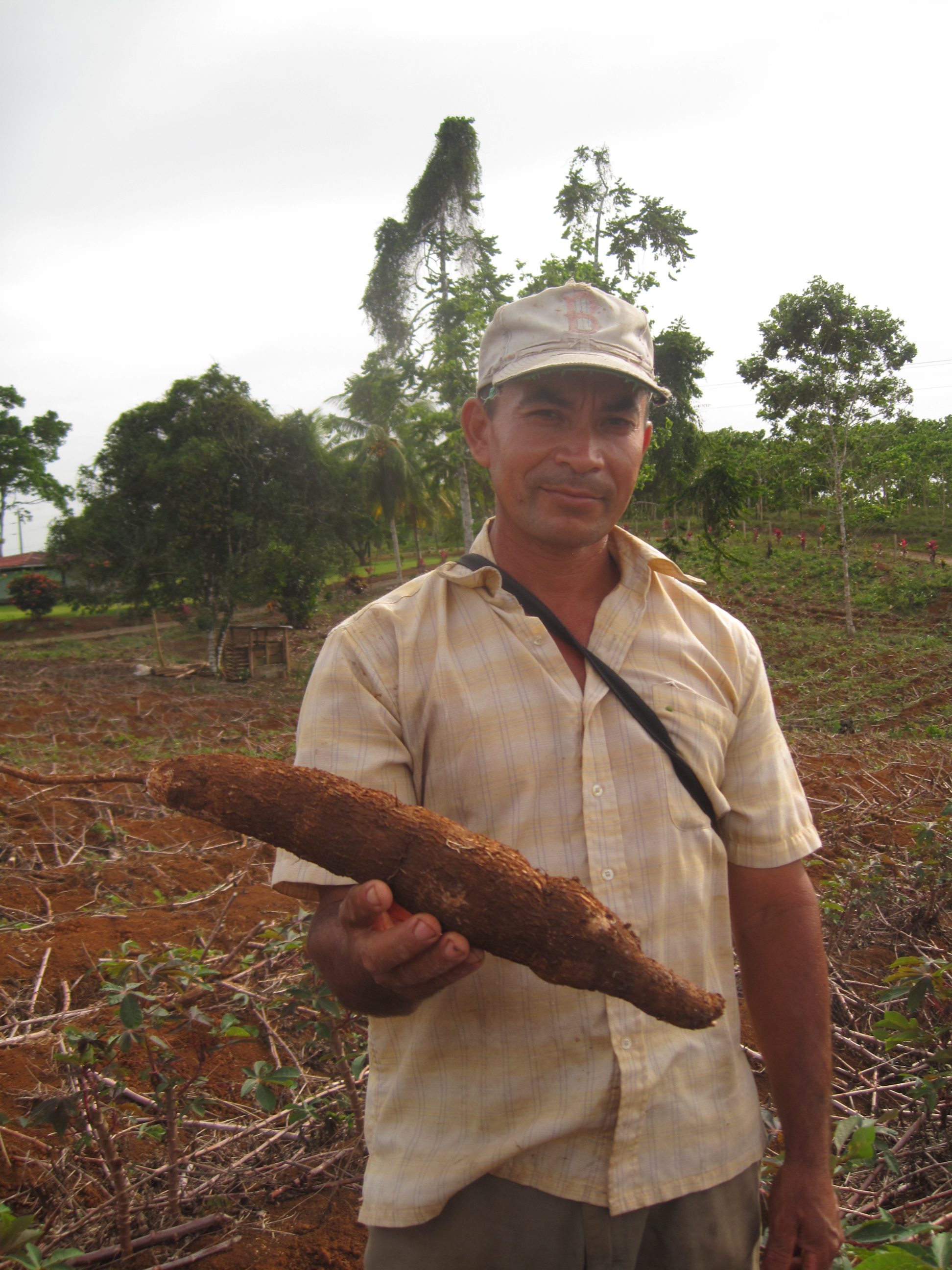
Coopesarapiqui
- Costa Rican cooperative of yuca, coffee and banana farmers
- committed to diversifying the farmers’ sources of income
- welcomes tourists from across the world on its coffee tour
Farmers in Costa Rica are stronger in solidarity
Sarapiquí in the north of Costa Rica is one of the country’s poorest regions. In 2009 a severe earthquake caused serious destruction in this area. It ravaged a significant swath of the coffee fields and caused serious infrastructural damage. In some places the impact is still evident today. For the small-scale producers in this region, being part of a successful cooperative can make all the difference.
Coopesarapiquí unites around 170 farming families from the region. They live primarily from the coffee crop, which they bring to market in partnership with the cooperative. Bound by values such as fairness and solidarity, they are also known for initiating diverse social projects. Such as their initiative to provide study grants for the education of its members’ children.
Coopesarapiquí also makes continual investments in the quality of its end products, such as its fair-trade yuca and banana chips. In doing so they are always looking to adopt the most eco-friendly technology, taking into account their impact on the environment.
It does all this as one of the seven fair-trade cooperatives that make up the Coocafé consortium.
Yuca chips bring in additional revenue
The farmers of Coopesarapiquí realise very well that when it comes to making a living, it’s best not to put all your eggs in one basket. With this in mind, they produce a lot of yuca, bananas and pineapples in addition to coffee. Which is why at Oxfam you can also buy fair-trade chips made from yuca and banana.
Coopesarapiquí has around 17 hectares of its own fields in which it grows yuca, also known as cassava or manioc. This extremely nutritious root vegetable is a staple of Costa Rican dishes but is rarely grown with a view to exporting it. When demand is high, the cooperative also works together with local yuca farmers.
Oxfam pays us considerably more than the low market price for yuca in Costa Rica. Coopesarapiquí uses the fair trade premium to set up social projects and to support our coffee growing activities.
Ecotourism on fair-trade farms
Another source of income tapped by the members of Coopesarapiquí in recent years is ecotourism. A smart move, as Costa Rica is one of the most popular tourist destinations in South America. On the Mi Cafecito Coffee Tour Coopesarapiquí guides you through the whole process from coffee bean to steaming cup of fair-trade coffee.
Coopesarapiquí & Oxfam
- Since 2009, the Coocafé consortium has been Oxfam Fair Trade’s supplier of the fair-trade-certified yuca chips that you can find in your local Oxfam-Wereldwinkel. They buy the yuca from Coopesarapiquí for a fair price. The farmers make so much more from their products this way than if they would sell elsewhere. Coocafé passes the Oxfam fair trade premium it receives straight onto Coopesarapiquí.
- Oxfam’s banana chips likewise follow this path from Coopesarapiquí to our stores. A number of cooperative members grow the bananas for this product, which serves as a welcome supplement to their income from coffee. Coffee and banana plants are very complementary crops, as it happens. The large leaves of the banana plants shelter the coffee plants from rainfall.
- In total Oxfam imports an average of 10 shipping containers of chips from Coopesarapiquí each year.